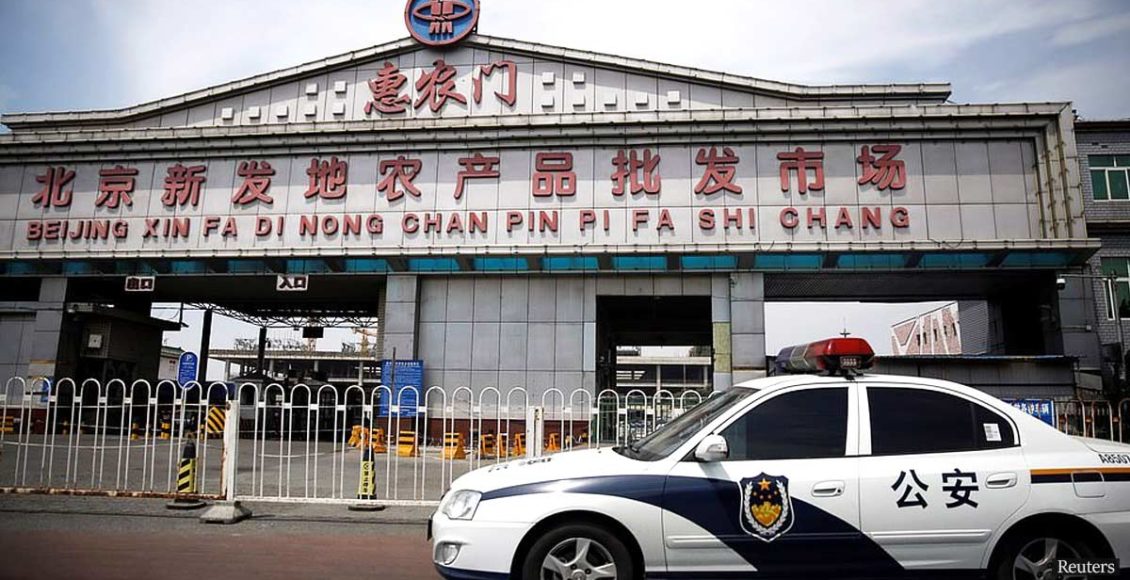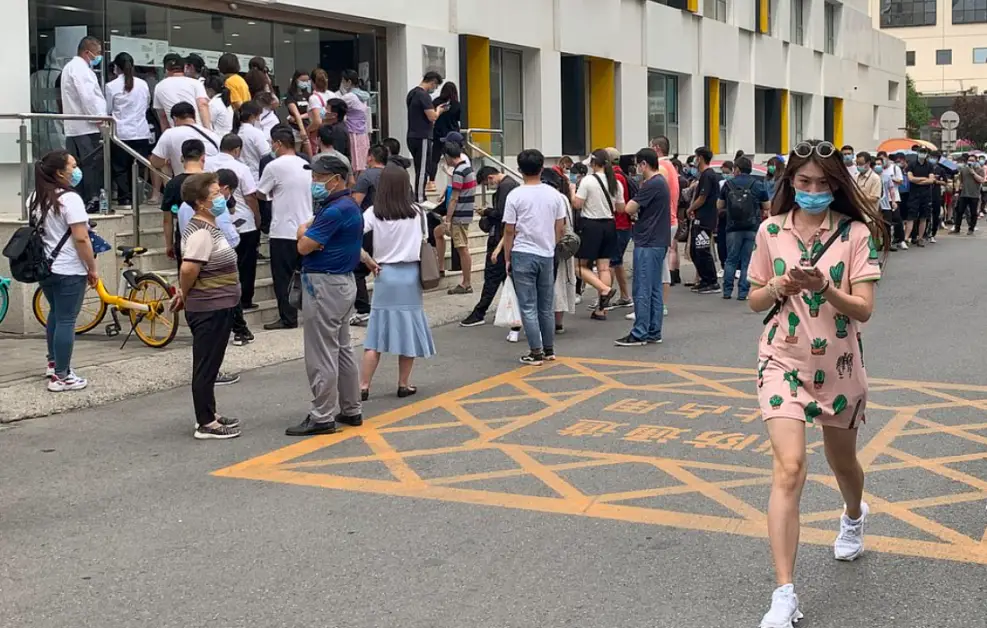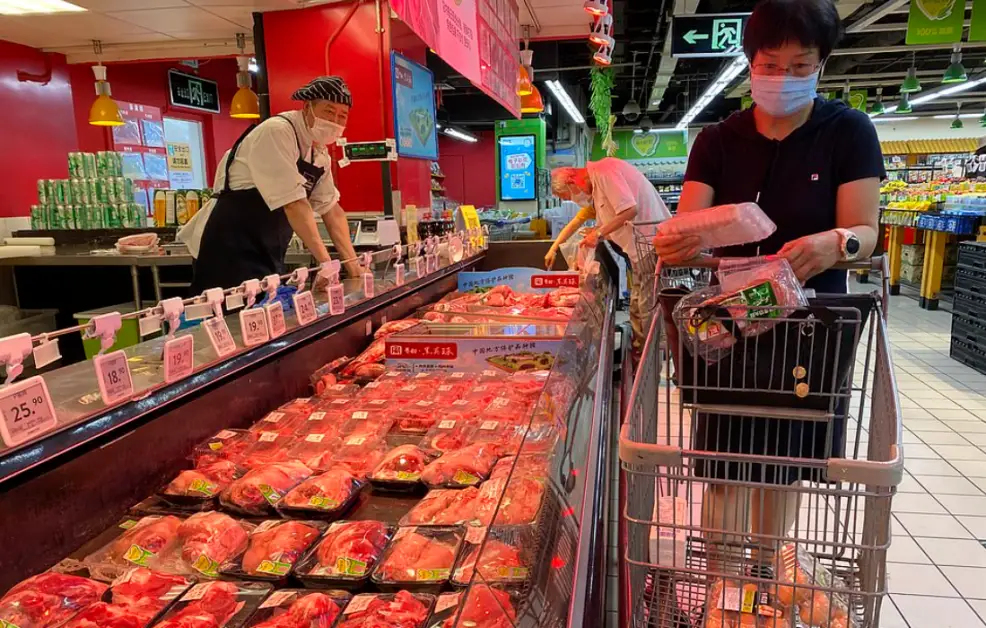Beijing announces emergency alert ‘level two’ and shuts schools as a response to a new COVID-19 outbreak

Coronavirus strikes again: Beijing has ordered all primary and secondary schools to close doors and start practicing online teaching from June 17.
China officials are taking this measure to battle a new coronavirus outbreak, as the recent cases have risen to over a hundred.
As Mail Online reports, the current crisis in the Chinese capital was caused by contaminated goods. Interpersonal communication could also be one of the reasons, according to the city’s officials.
On Tuesday, June 16, another 27 Beijing residents have tested positive for coronavirus. All of them had connections with the Xinfadi market. According to the city’s government, the massive food wholesale market is thought to have spawned the new health crisis. The virus strain found inside Xinfadi likely came from Europe, a researcher from the Beijing Centre for Diseases Prevention and Control claims.
Beijing authorities have intensified the city’s COVID-19 emergency response alert from ‘level three’ to ‘level two’.
What’s more, the government now classifies the event as a ‘severe’ public health emergency.
People living near the market or have visited it in the past two weeks are prohibited from leaving the Chinese capital. The rest of the Beijing population will be allowed to travel outside the city only if they have tested negative for the virus within the past seven days.
On Saturday, the Xinfadi market’s chairman, Zhang Yuxi, revealed that researchers had found traces of the novel coronavirus on a chopping board used to cut imported salmon. Yuxi explained:
“The result of the inspection was a notification received on the morning of June 12, and through our self-examination, the source of the imported salmon was the Beijing-Shenzhen seafood market. Currently, 9 staff members involved in salmon in the new market have been tested for new coronavirus. Their results are temporarily negative and they are currently in isolation.”
However, the Chinese Centre for Disease Control and Prevention (CDC) claimed there is no evidence showing salmon was the host of the virus.
Beijing residents are now forced into quarantine as the city goes back into a lockdown regime.
This comes after mass testing in the capital resulting in drastic lockdown measures. In recent days, COVID-19 cases in the city have spiked, reaching more than a hundred. Authorities locked down nearly 30 communities in the city and tested tens of thousands of people.

WHO emergencies director Mike Ryan said:
“A cluster like this is a concern and it needs to be investigated and controlled – and that is exactly what the Chinese authorities are doing.”
According to Beijing city spokesman Xu Hejian, the current epidemic situation is ‘extremely severe’.
Additionally, Vice Premier Sun Chunlan urged the city’s officials to impose ‘the strictest’ virus control measures to contain the spread of the virus. In response, Beijing officials assured they would test stall owners and managers at all of its food markets, restaurants, and government canteens.
In addition to the quarantine regime, the capital’s transport commission also banned taxi- and ride-hailing services from carrying passengers out of the city. Moreover, all indoor sports and entertainment venues in Beijing were ordered to shut on Monday. Meanwhile, some other cities across China warned they would quarantine arrivals from the capital.
The National Health Commission reported four new domestic infections in Hebei province, surrounding the capital.
Another case from Sichuan province was reportedly linked to the Beijing cluster.
Yang Zhanqiu, the deputy director of the pathogen biology department at Wuhan University, suggests that the high number of new cases could mean a more infectious new virus strain. He believes that in case the virus spreading in Beijing ‘matches the type of virus sampled in the Xinfadi market and from Europe’, then it was most likely imported by people or goods from Europe.
According to Yang, the new strains of the virus make finding a vaccination more challenging:
“No doubt different genotypes of the virus can cause the vaccine to be less effective, or even ineffective. That means the vaccine would have to be effective against both viruses circulating in China and those in Europe, adding difficulty to developing a vaccine.”
‘Wartime mechanism’ in the Fengtai district, where the market is based was announced on Saturday.
They will also establish a command center managing the spread of the new outbreak.
At least 11 neighborhoods near the Xinfadi market have been put under lockdown. Some areas have even been fenced off, while the government has launched a mass testing program. Around 90,000 people are affected by the restrictions.
Furthermore, several Beijing districts reestablished security checkpoints. Authorities closed primary and secondary schools in the area and ordered residents to be tested for COVID-19.
The Xinfadi market, which is believed to be the place where the new outbreak emerged, was closed in the early hours of Saturday.

Beijing Municipal Health Commission spokesperson reported that health workers had given nucleic acid tests to 76,499 people. As a result, 59 of them had been diagnosed with COVID-19.
As CNN reveals, the Fengtai district has collected samples from 8,950 people who worked in the market. So far, more than 6,000 samples have been tested, and the results are all negative. What’s more, officials had also managed to track down and collect samples from almost 30,000 people who had recently visited Xinfadi. Results have shown that the 12,000 tests conducted so far had come back negative.


